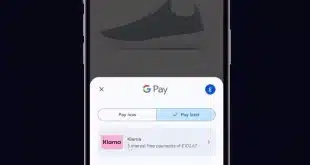In a move that could indicate a thaw in the long cold war between banks and wireless carriers in the mobile-payments business, the carrier-controlled Isis venture on Monday announced a trio of major banks are the first to sign on as issuers on its platform. Indeed, with the Isis wallet set to launch this summer in two test cities, company executives say more banks will climb onboard before long. “The demand to participate in this capability is much broader than these three issuers,” Jim Stapleton, chief sales officer for the venture, tells Digital Transactions News, though he refuses to say when more banks will be announced.
Together, the first three issuers–Barclaycard U.S., Capital One Financial Corp., and JPMorgan Chase & Co.–account for some 100 million credit, debit, and prepaid cards in the United States, but it’s hard to say whether the banks will enable all card types for Isis immediately or how many cardholders live in or near the two launch cities, Austin, Texas, and Salt Lake City, Utah. Isis, which relies on near-field communication (NFC) technology to handle payments and marketing offers, says all three card types are eligible for use.
Contacted by Digital Transactions News, spokespeople for the three banks would not discuss numbers. “We are in the process of determining the card options that will be available for the mid-2012 pilot in Salt Lake City…and Austin…” a Chase spokesperson said by e-mail.
Still, the recruitment of the three banks represents a victory of sorts for the mobile operators, which have been at loggerheads with U.S. banks for years as the two sides have tried to launch NFC-based mobile payments. “It’s a big deal,” notes Rick Oglesby, a senior analyst at Boston-based research firm Aite Group LLC. “It proves the issuing value proposition is solid.” Dallas-based Isis was formed in November 2010 by AT&T Mobility, T-Mobile USA, and Verizon Wireless.
As for coverage in the two launch cities, Oglesby says the inclusion of top-tier issuers should help ensure most cardholders will be able to participate. “It’s a pretty robust percentage in those cities that will have those cards,” says Stapleton.
Isis depends on fees from both merchants and issuers for its revenue. Last week, the venture disclosed it is planning to have at least 1,000 merchants signed in each of the two test cities by the time the pilots start. But the company will not discuss fees. “The terms of our relationship are confidential,” Stapleton says, referring to the deals with Barclaycard, Cap One, and Chase.
With Monday’s announcement, Isis may also have stolen a march on its chief rival, Google Inc., which launched its NFC-based mobile wallet commercially in September but has attracted just one issuer, Citigroup Inc.’s Citi unit. Some observers say banks may prefer dealing with Isis, despite their longstanding feud with mobile carriers, to dealing with Google. Banks fear the online search giant will leverage the data they gather with Google Wallet to pry away bank customers, these observers say. “They see Isis more as a partner than a potential disintermediator, a role Google was eager to shed yet [is finding it] hard to get rid of ,” notes Cherian Abraham, principal analyst at Drop Labs, Richmond, Va., in an e-mail message.
In this regard, Isis appears to have benefited from a major change in strategy it executed about 10 months ago. At its launch, it said it intended to build a proprietary network that would link merchants to institutions that would hold and manager Isis payment accounts. Indeed, Barclaycard was announced then as the first bank to participate, with Discover Financial Service’s Discover Network running the switch. But in May the company said it was scaling back its ambitions and would be content to operate a mobile-payments platform open to any existing card network.
In the ensuing months it signed licensing deals with American Express Co., Discover, MasterCard Inc., and Visa Inc. to be able to offer the four networks’ contactless systems, which constitute the groundwork on which NFC must be built. With the strategic shift, Isis now operates a “wallet platform rather than a wallet network,” says Oglesby. “Issuers seem to be buying in, and they’re major issuers.”





